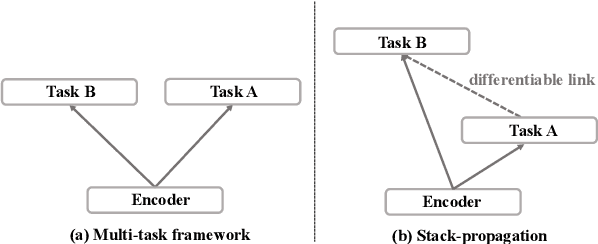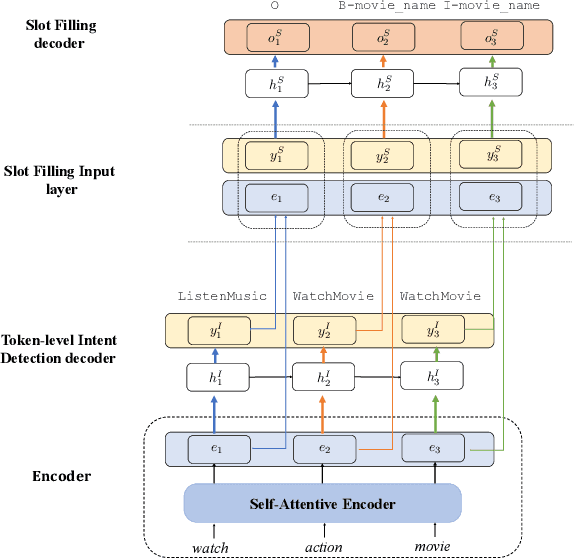A Stack-Propagation Framework with Token-Level Intent Detection for Spoken Language Understanding
Paper and Code
Sep 05, 2019



Intent detection and slot filling are two main tasks for building a spoken language understanding (SLU) system. The two tasks are closely tied and the slots often highly depend on the intent. In this paper, we propose a novel framework for SLU to better incorporate the intent information, which further guides the slot filling. In our framework, we adopt a joint model with Stack-Propagation which can directly use the intent information as input for slot filling, thus to capture the intent semantic knowledge. In addition, to further alleviate the error propagation, we perform the token-level intent detection for the Stack-Propagation framework. Experiments on two publicly datasets show that our model achieves the state-of-the-art performance and outperforms other previous methods by a large margin. Finally, we use the Bidirectional Encoder Representation from Transformer (BERT) model in our framework, which further boost our performance in SLU task.
 Add to Chrome
Add to Chrome Add to Firefox
Add to Firefox Add to Edge
Add to Edge